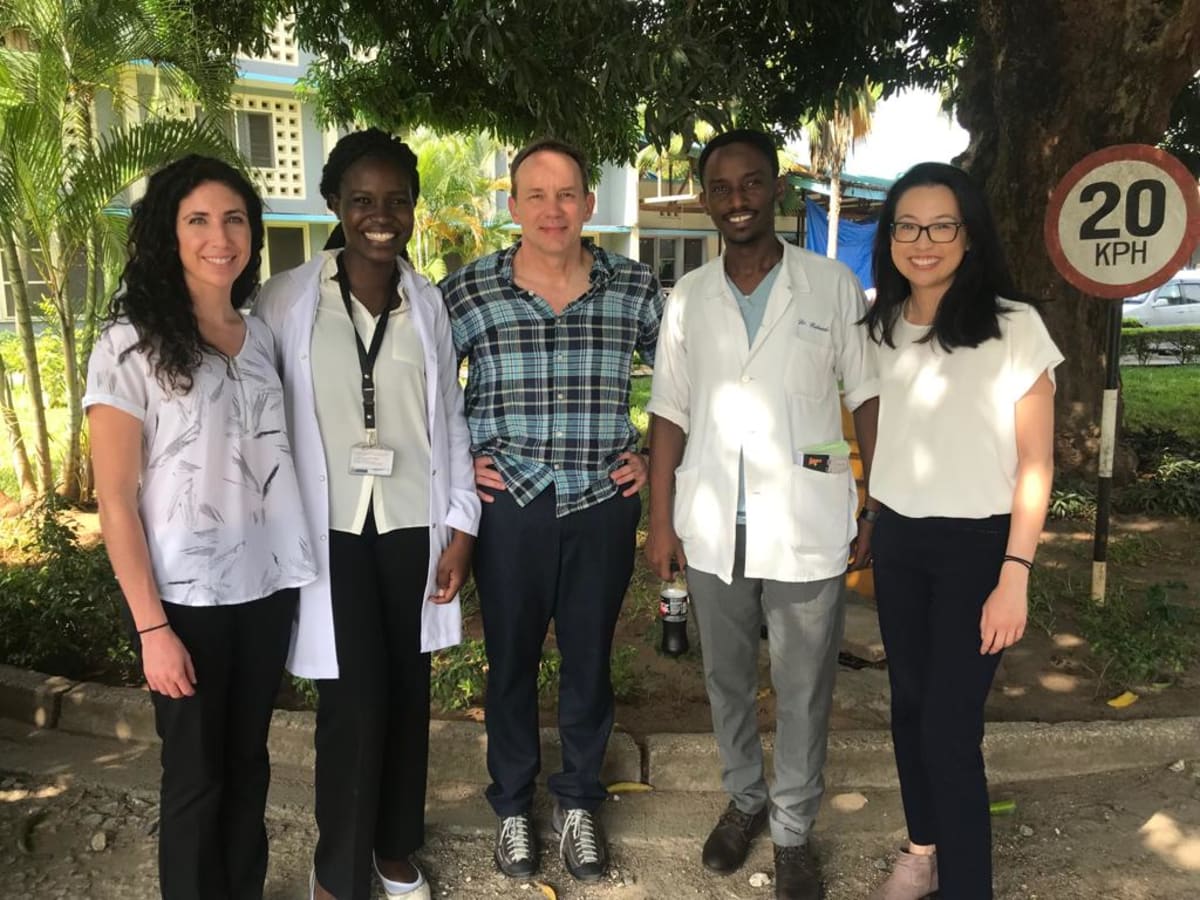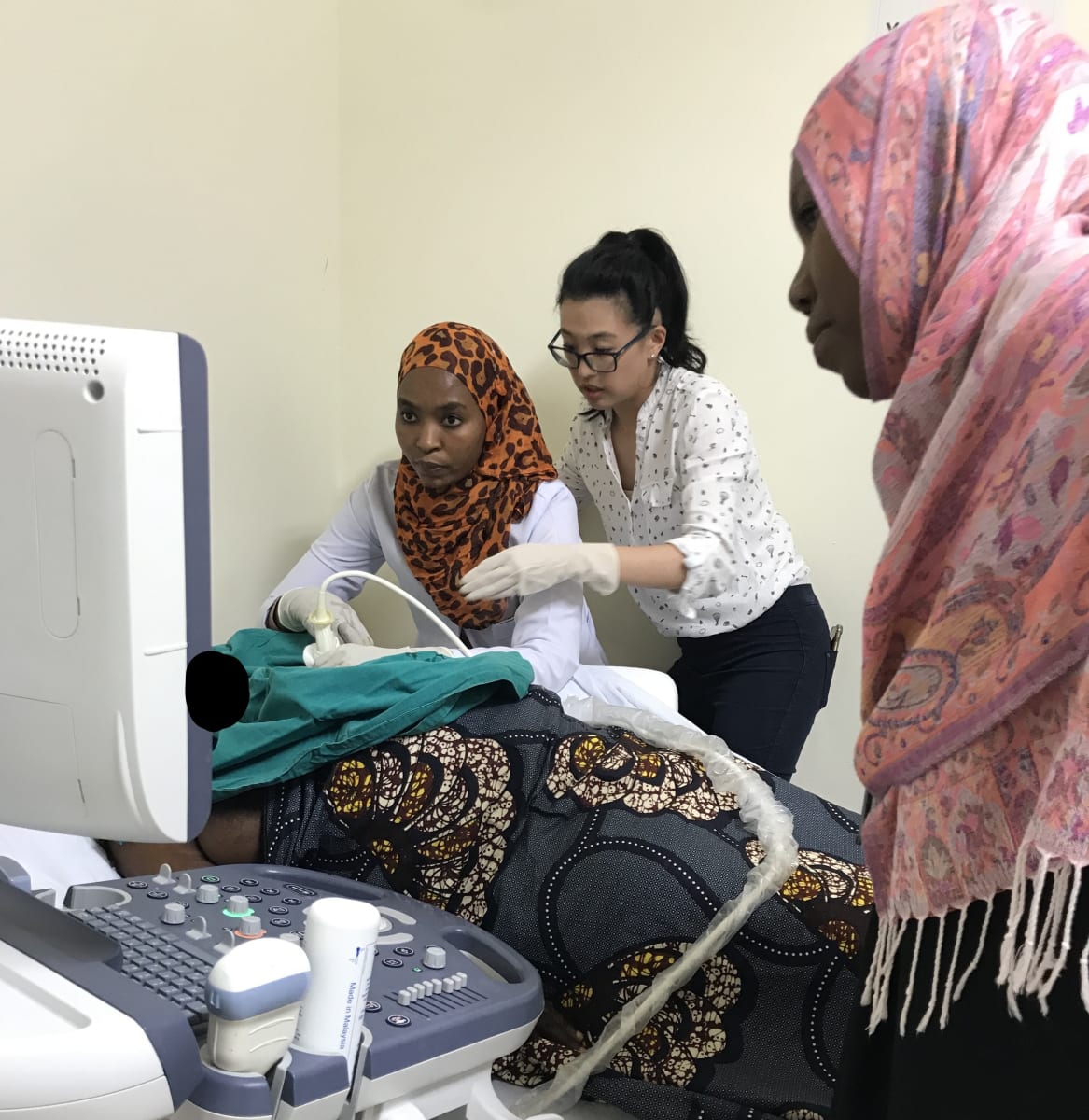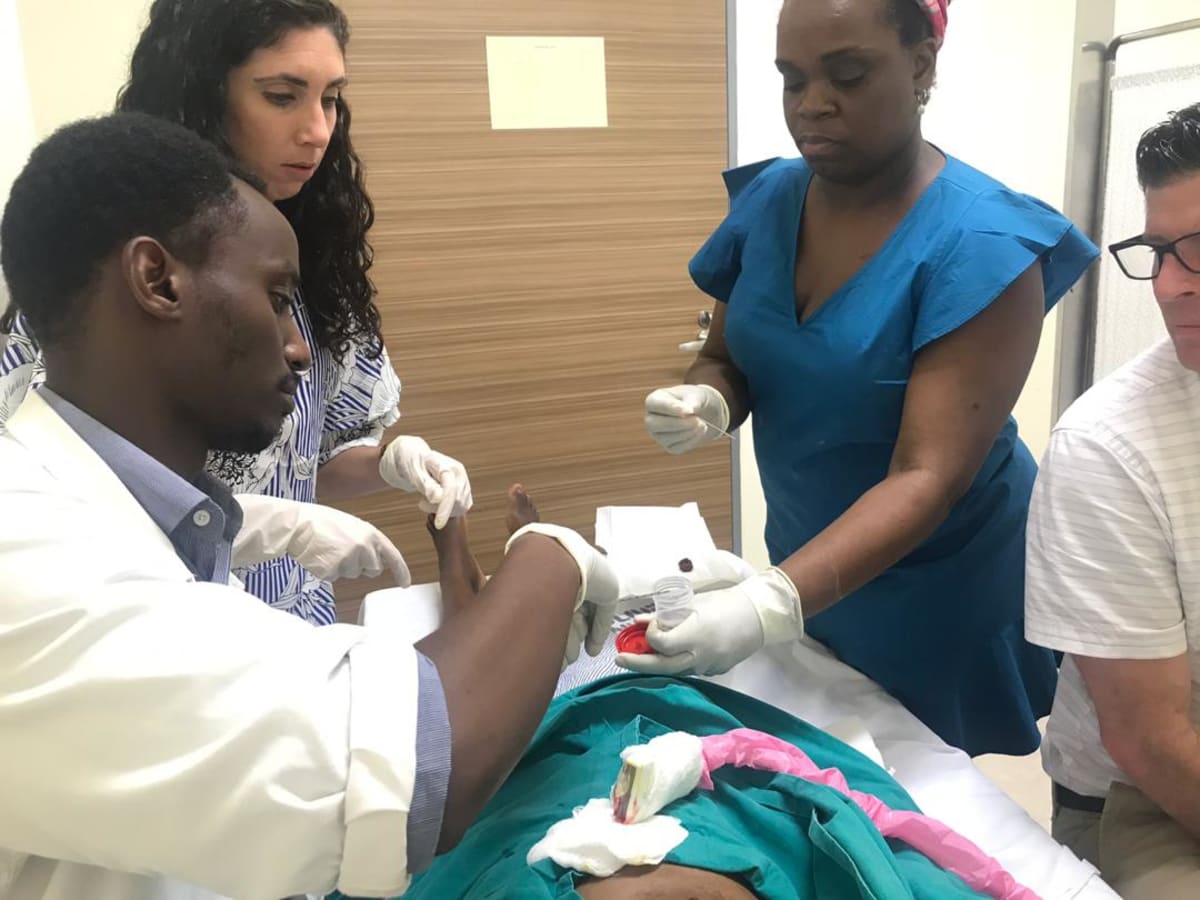I will be going to Tanzania with Dr. Timothy Rooney from Dartmouth-Hitchcock Medical Center, Dr. Frank Minja from Yale and my co-resident Dr. Allison Backer to work at Muhimbili National Hospital complex (MNH), which is a government supported and a University medical training facility in Dar Es Salaam. Breast cancer continues to become more prevalent in this population with presentation often in an advanced stage and we therefore intend to teach our Tanzanian medical colleagues about breast imaging and intervention. We hope that this will make an impact in earlier diagnosis and earlier time to treatment. We hope to improve patient care through improved diagnostic acumen and intervention. We plan to provide teaching in the form of didactic lecture sessions, workstation teaching and hands on teaching of intervention and biopsy techniques. We intend to encompass all radiology modalities involved in the comprehensive evaluation of breast disease, including mammography, ultrasound, radiographs, CT and MRI. We hope that we will be able to make a lasting impact and will be able to teach medical professionals who will then be able to put these skills into practice and teach others as well.
We will continue to build upon work that has been done on past trips to Tanzania. On this next trip we plan to introduce more accessible imaging via portable handheld ultrasound devices which will work with compatible phones and tablets. We plan to demonstrate and teach our Tanzanian colleagues how to use these devices. In addition, we plan to continue to teach breast imaging and intervention while introducing the Bi-RADS reporting system. In addition to breast imaging teaching, we hope to introduce additional topics such as musculoskeletal imaging including MSK ultrasound and POC ultrasound.
We plan to serve the population served by the Muhimbili National Hospital complex as breast cancer continues to become more prevalent in this population with presentation often in an advanced stage. We intend to teach our Tanzanian medical colleagues about breast imaging and intervention in the hopes that this will make in impact in earlier diagnosis and earlier time to treatment.
The expected impact is for us build upon prior trips to Tanzania by continuing to introduce breast diagnostic and intervention techniques to make an impact in earlier diagnosis and earlier time to treatment. We hope to improve patient care through improved diagnostic acumen and intervention. We hope that the medical professionals we teach will in turn teach others, improving accuracy and service for patients even after we return from our trip.








The group from Dartmouth Hitchcock Medical Center recently returned from our two-week trip to Dar es Salaam, Tanzania, where we worked with the radiology group at Muhimbili National Hospital Complex. Our focus was on breast imaging and breast intervention and working on creating a breast program to improve access to breast imaging and achieve earlier diagnosis and time to treatment.
We were met with incredible support from the hospital administration and amazing enthusiasm from the attendings and residents. We hit the ground running, working on ultrasound skills and utilizing BIRADS to inform clinical decision making and ultimately working on ultrasound guided core biopsies. We were also able to introduce the use of portable ultrasound devices, in the hopes of increasing the accessibility of ultrasound, both for diagnosis as well as for intervention.
The attendings and residents were enthusiastic and quickly became facile in breast imaging and intervention. We worked with the team to set up a dedicated ultrasound guided biopsy room and create a biopsy kit that would be feasible and sustainable after we left. We also focused on incorporating a structured workflow from diagnosis to resulting pathology, including timeout, consent, BIRADS utilization, rad-path correlation, and deliverance of pathology results.
Our two-weeks in Tanzania flew by and our hope is that our breast imaging and intervention project continues, with the goal of making a real difference in effecting earlier diagnosis and earlier time to treatment. There is continued enthusiasm in the comprehensive breast program, with our radiology colleagues in Tanzania looking towards the future with an even larger goal of promoting women’s imaging and women’s health.
Thank you, Dox Foundation, for your generous support of our collaboration!